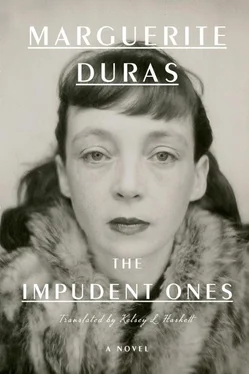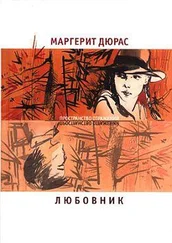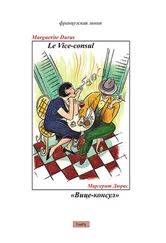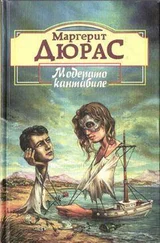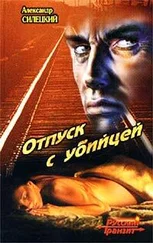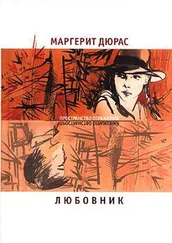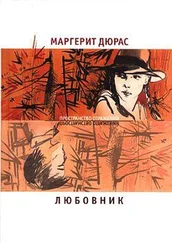The old servant found her lying on her bed with a terrible paleness. “If you want, I’ll tell monsieur you’re not feeling well…,” she offered. Then, stopping herself, she became fearful—fearful that Maud would hang on to this master whom she adored. The servant lied, in a soft voice. “I think it’s this heat,” and then: “It’s no kind of life staying shut up all day long…”
However, it was by virtue of the old woman’s embarrassed look, of someone wanting to flee, that Maud understood she was pregnant.
GEORGE SLEPT ON THE DINING ROOM COUCH AND LEFT FIRST thing every morning.
Maud hesitated. Should she tell him? Even if she no longer loved him the way she once had, he still had all her esteem. He would have married her if she had consented to it. The whole problem was with her, with her lack of will. Wasn’t it unworthy of her to agree now to what she had refused?
Moreover, she still intended to leave. The idea that her family might have left frightened her. Her child was not yet detached enough from her life for it to count more than she did.
She was served her meals quite early, so that George wouldn’t be home yet. The servant hid from her master that the dishes came back almost intact, so he stopped worrying. Maud’s boredom finally reached such depths that the thought of her child no longer occupied her mind. As her doubt disappeared, she thought of it even less.
She stopped reading. The things she thought about had no relationship to her present life. She became absorbed in memories that suddenly distinguished themselves from others, for no apparent reason, and took on the strange proportion of nightmares.
Very early one morning, she was awakened by repeated knocking on the door. George opened it; he said something she didn’t understand. She jumped out of bed and got dressed in haste, not being able to hurry as much as she would have liked because her hands were cold and she was trembling. For three weeks she had been waiting, hidden away in this narrow room. And now it had happened: someone, abruptly, remembered her.
George called her with a strangled voice, and she noisily pushed open the bolt on the door, to show that she was up. As soon as she was dressed, she opened the shutters. The day was just beginning to break, turning the horizon green. Since the beginning of her exile she had lived off the vision of this landscape, but because she had never seen it at the crack of dawn, she didn’t recognize it right away. She stopped a moment to look at it and then resolved to go downstairs.
In the dining room the awakening day entered by the open door, so indistinct one couldn’t predict what kind of day it would be, while dark shadows still reigned in the far corners of the room. George had dressed hastily in an old pair of pants and a shirt pulled across his chest with a shiver. His messy brown hair gave him a rough-and-tumble look. Standing near the couch, he remained silent.
In front of him, Mrs. Taneran was seated. As usual, she wore a long black dress. A hat with a brim that was too large hid her face and somewhat crushed her silhouette. Beside her, on the ground, was a traveling bag. Without lifting her head, she said calmly, “So, are you coming down?”
On hearing her mother’s forced voice, Maud imagined that her brothers were waiting behind the door, on the lookout for her appearance. The creaking of the stairs beneath her feet soon exasperated her. Her throat was as dry as if it had been made of stone.
Instinctively, she mustered her strength. The effort prevented her from seeing George, who was looking at her, and caused her to forget him.
Partially concealed by her big hat, Mrs. Taneran’s features did not stand out the way they usually did. Her eyelids were swollen with sleep, and to avoid lifting her eyes to look at Maud and George, she focused on the ground. But her emotions could be guessed by the redness of her neck and the quiver of her pursed lips. She tried to control herself, but she was too old to hide an emotion inscribed on her bruised flesh that made her look even more pitiful.
Maud considered her mother a moment, then drew so close that Mrs. Taneran could not hold back a nervous gesture. Standing up, Maud’s mother declared, “No, you’ve hurt me too much.” Then, turning toward George, more embarrassed than she would have liked to appear, she continued. “You’re going back to Bordeaux soon? I hope you will not prolong your holidays any longer…”
George gave a polite bow. “Don’t worry, I’m leaving…” He might possibly have liked to say something to Maud, but he felt hindered by the presence of this older woman.
He accompanied them both to the doorway, and when they were barely out, the door closed curtly. Maud perceived the noise of the latch. She thought she would come back someday, at a time that would have nothing in common with what was happening now, a time of peace and sadness.
The night had not totally vanished; the countryside was without shadows and gently lit by a light arising in the east, from a gash in the sky and clouds. Mrs. Taneran announced, “It’s four thirty. If we walk quickly, we’ll get to the train for Bordeaux by six o’clock.” To Maud’s surprise, no one was waiting for them.
On each side of the lane, which was white with dryness, the tops of the cypress trees, of a faded green, moaned gently in the breeze that lapped at them with little swigs. Maud walked behind her mother. As on the day she ran away, she was wearing nothing but a summer dress. She was cold. Mrs. Taneran didn’t notice, absorbed as she was in her thoughts. “Your brothers are on the road, by the Pecresse house,” she said shortly. “They’re coming with us to Bordeaux. I have some errands to run there…”
Her tone was almost familiar, although she still feigned a refusal to look at her daughter. She walked quickly and Maud had to step up her pace. Then, automatically, she took her mother’s traveling bag. At first, she felt a resistance, but her mother’s fingers suddenly let go; their eyes met for a second; they still had nothing to say to each other, but by mutual agreement, they sped up a little. Behind them, clusters of dust rose and swirled for an instant. Leaving The Pardal on the right, they turned off onto the hollow road and passed alongside the Uderan grounds.
At that point Mrs. Taneran declared, “I’ve sold the proper ty to the Pecresses, who will take it over as tenant farmers; it’s a very good deal. I keep the majority of my rights. It would have been hard for me to let go of my precious house at my age… Fifty thousand francs,” she exclaimed. “They gave me fifty thousand francs in cash. That’s excellent, you know…”
Maud continued to walk with her head down, without responding. Her mother’s indulgence astonished her. Without directly referring to their quarrel, her words erased it: “It doesn’t seem to surprise you that I came looking for you…”
Maud murmured, “It was time that you came…”
Mrs. Taneran could barely hold back a sign of satisfaction. “That worked out well! I suspected you had had enough. Personally, I thought he was too old for you. I wanted to tell you—here people don’t know you were staying with Durieux… You didn’t go out, you were careful, that’s good… The Pecresses know and have kept quiet. You will come to know them; they’re good people… So, I was saying that… We’ve left to get you, you are coming from Auch, from your aunt’s, Taneran’s sister, do you hear? At whose place you have just spent a couple of weeks… Afterward, well afterward, you will have to accept what we tell you, because you have seriously compromised yourself…”
Mrs. Taneran blushed. “John Pecresse adores you; he’ll overlook everything…”
Читать дальше
